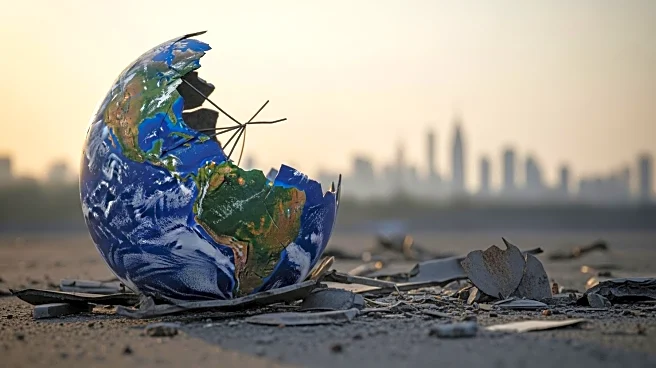What's Happening?
The Houthi movement in Yemen has declared that their Prime Minister, Ghalib al-Rahawi, along with eight ministers, were killed in an Israeli airstrike on Thursday. The attack targeted the Houthi capital of Sanaa, including ballistic missile sites and electricity infrastructure. The Houthis reported that several ministers present during the strike were seriously and moderately injured and are currently receiving medical treatment. This development follows a series of missile and drone attacks by the Houthis against Israel since October 2023, with Israel responding with counterstrikes starting in July 2024. Despite the ongoing conflict, no Houthi weapon has resulted in Israeli casualties since July 2024.
Why It's Important?
The death of the Houthi Prime Minister marks a significant escalation in the ongoing conflict between the Houthis and Israel. This event could further destabilize the region, impacting diplomatic relations and security dynamics in the Middle East. The airstrike demonstrates Israel's continued military engagement in Yemen, which may influence international perceptions and alliances. The loss of key Houthi leadership could lead to shifts in the group's strategy and operations, potentially affecting the balance of power in Yemen and its neighboring countries.
What's Next?
The aftermath of the airstrike may lead to increased tensions and retaliatory actions from the Houthis. Israel's military strategy and political stance in the region could face scrutiny and potential diplomatic challenges. The international community may call for negotiations or interventions to prevent further escalation. Monitoring the situation will be crucial for understanding the evolving geopolitical landscape and its implications for regional stability.
Beyond the Headlines
The strike raises ethical and legal questions regarding the use of military force and its impact on civilian populations. The targeting of government officials in conflict zones can lead to debates on international law and human rights. Long-term consequences may include shifts in regional alliances and the potential for increased humanitarian crises.










